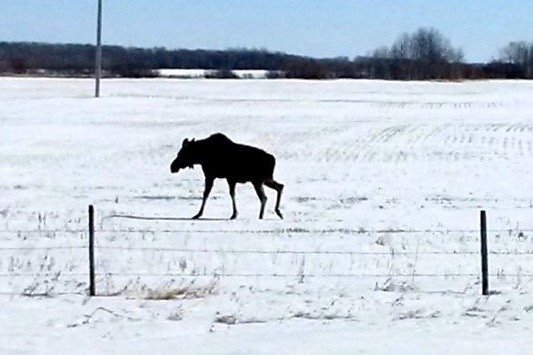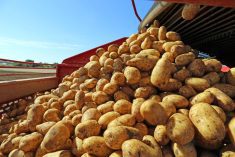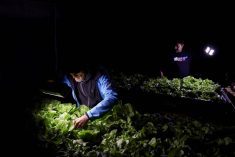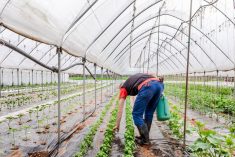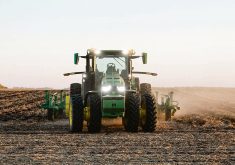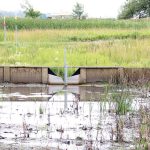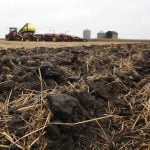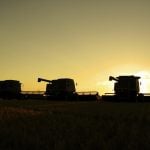Moose causing crop damage on farms in Newfoundland and Labrador may now be shot by farmers at night under a new special permit system.
Farmers dealing with “problem moose” can now apply for permits for night shooting, via provincial agriculture development officers in their areas, the provincial fisheries and land resources department said Thursday.
The permits come with certain conditions, including:
- putting priority on “non-lethal crop protection methods,” such as fencing, bangers, motion-detected lighting and/or live trapping, whenever and wherever possible;
- drafting farm-specific “agricultural depredation plans,” which would map out when and where “lethal removal” can take place;
- eligibility requirements for designated shooters on farms, such as completing a hunter safety program and being eligible to hold a big game licence; and
- limits on the types of firearms that can be used — for example, prohibiting use of high-powered and long-range firearms in populated areas.
Read Also
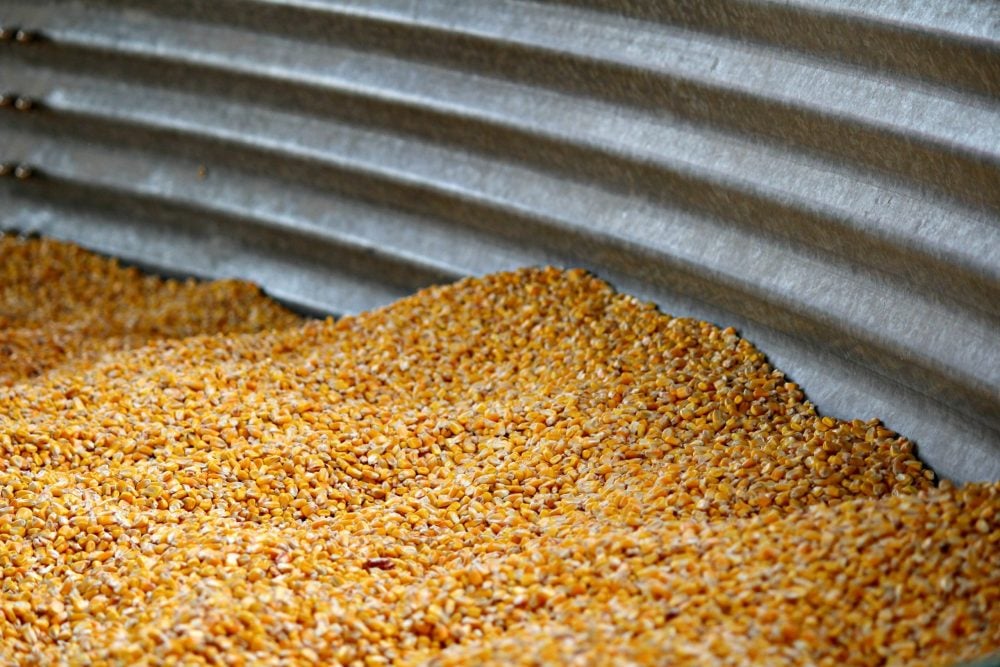
Feed Grain Weekly: Demand, activity slowly rising
While demand and activity is slowly ramping up for the fall cattle run, feed grain prices are currently in decline, said a Lethbridge, Alta.-based trader.
The new policy follows a round of public meetings and online consultations in February and March.
In those consultations, farmers said current crop insurance programs don’t adequately cover moose damage; fencing of large fields isn’t feasible; and conservation officers can’t respond to farm calls quickly enough to deal with problem moose when they appear.
But the public consultations also showed concerns with allowing night shooting, such as risks to public safety, the possibility for increased poaching, and the odds that animals wounded at night would be difficult to retrieve.
“The amendments made today will ensure that farmers will have a means to protect their crops against moose damage when all other non-lethal crop protection methods have failed,” Melvin Rideout of the Newfoundland and Labrador Horticultural Producers Council said Thursday in the province’s release.
Moose damage on vegetable farms in the province generally begins in August, when the leaves on birch trees begin to turn, farmers said during the consultations. However, they added, moose damage on fruit crops “continues throughout the year.”
While moose are native to Labrador, the species didn’t appear in Newfoundland until it was introduced there for game in the 1870s. — Glacier FarmMedia Network

